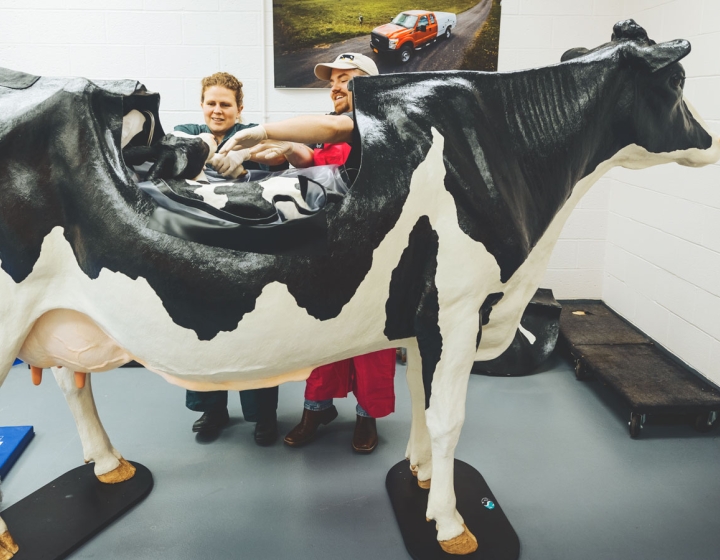Richards: How dogs are teaching researchers new tricks for treating cancer
Note: This news item features content from another page. View the featured content for this news item.
In 2003, newly minted MD Kristy Richards was preparing to move to Houston, Texas, to start a fellowship in oncology. At a friend’s wedding, she got talking with a fellow guest from Houston, a veterinarian who treated dogs with cancer. Richards was incredulous. “You give chemo to dogs?” she recalls asking. Yes, veterinarians do give chemotherapy to dogs. In the case of non-Hodgkin’s lymphoma, for example, the pooches get a cocktail of four drugs known by the initials CHOP, a mainstay of first-line chemotherapy in humans. Richards’ chance encounter shaped her career. She now has joint appointments at the veterinary school of Cornell University in Ithaca and its medical school in New York City. And she is on a quest to improve treatment for both people and dogs with lymphoma. Her primary concern remains human health. “I want to cure lymphoma in people,” she says. “I just happen to be able to say that I help the research organism that I’m working on.” Veterinary researchers, too, are on the lookout for cross-species benefits. Although their main goal is to find ways to treat canine lymphoma, “if it works in humans, it’s a bonus”, says Jaime Modiano, a veterinary oncologist at the University of Minnesota in Minneapolis. Modiano and Richards are part of a growing cadre of interdisciplinary researchers who have made lymphoma into a prime example of the ‘one medicine’ concept — the idea that human and animal physiology, health and disease are intricately linked. The latest studies...






